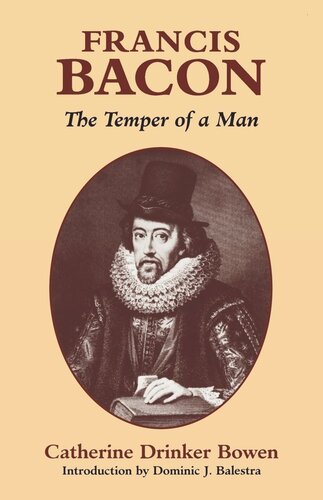

Most ebook files are in PDF format, so you can easily read them using various software such as Foxit Reader or directly on the Google Chrome browser.
Some ebook files are released by publishers in other formats such as .awz, .mobi, .epub, .fb2, etc. You may need to install specific software to read these formats on mobile/PC, such as Calibre.
Please read the tutorial at this link: https://ebookbell.com/faq
We offer FREE conversion to the popular formats you request; however, this may take some time. Therefore, right after payment, please email us, and we will try to provide the service as quickly as possible.
For some exceptional file formats or broken links (if any), please refrain from opening any disputes. Instead, email us first, and we will try to assist within a maximum of 6 hours.
EbookBell Team

5.0
98 reviewsThe portrait Bowen paints of this controversial man, Francis Bacon (1561-1626), balances the outward life and actions of Bacon with the seemingly contradictory aspects of his refined philosophical reflections. As Lord Chancellor of England, Bacon was impeached by Parliament for taking bribes in office, convicted and banished from London and the law courts. In a prayer Bacon composed during the interval following his punishment, he reveals that dichotomy of his existence was no more deeply felt than by himself, and he readily admits that his obligations to society were not as suited to his nature as the study of philosophy, science, and law.
Modern scholars hold Bacon’s philosophical works, Novum Organum, Advancement of Learning, and The New Atlantis, as his greatest achievements. Bowen’s story reveals a man whose genius it was not to immerse himself in the rigor of scientific experimentation, but to realize what questions science should ask, and thereby reach beyond the status quo and appeal to the wider imagination of his generation. In his writings, Bacon challenged established social and religious orders, raised questions about the mind/body relation and the role of dreams, and foresaw the development of modern research university. It is Bacon’s legacy to have gone beyond his age and, out of pure intuition, anticipate the concerns of future generations.